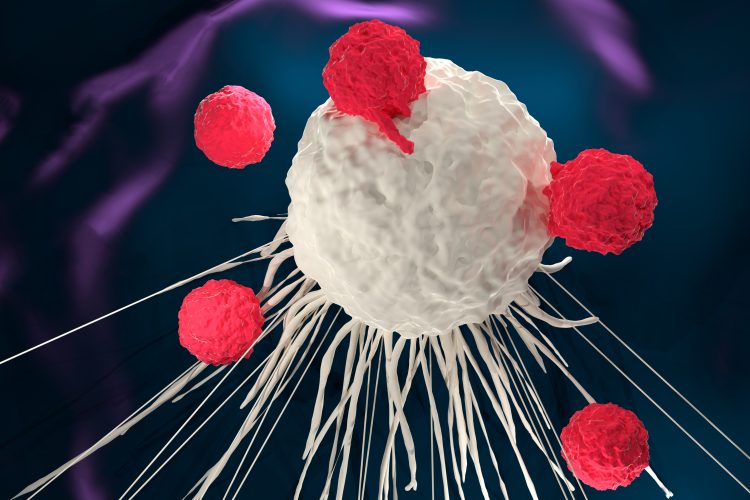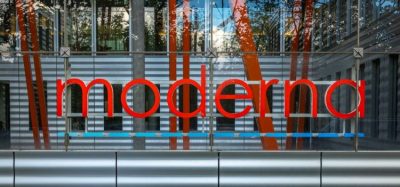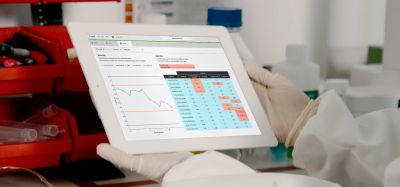First-in-human universal CAR-T therapy trial begins
Posted: 4 December 2020 | Hannah Balfour (European Pharmaceutical Review) | No comments yet
The dose-finding trial will evaluate the safety and activity of UniCAR-T-PSMA in up to 16 patients with advanced relapsed/refractory, PSMA-positive solid tumours.


GEMoaB has announced that the first patient has been apheresed with UniCAR-T-PSMA, the lead solid tumour candidate from its proprietary UniCAR cellular immunotherapy platform. The Phase Ia trial will evaluate the safety and tolerability of UniCAR-T-PSMA in late-stage, relapsed or treatment-refractory solid tumours expressing the prostate specific membrane antigen (PSMA) antigen.
UniCAR is a rapidly switchable universal chimeric antigen receptor (CAR)-T cell platform that the company is developing to improve the therapeutic window and increase the efficacy and safety of CAR-T cell therapies in challenging cancers, including acute leukaemias and solid tumours.
The company states that while traditional CAR-T therapies depend on the presence and direct binding of cancer antigens for activation and proliferation, the UniCAR platform has a rapidly switchable on/off mechanism that is based on Targeting Modules (TMs). TMs have a short half-life and are quickly internalised by cells. After internalisation, TMs go on to act as soluble adaptors which provide the antigen-specificity to activate UniCAR gene-modified T-cells (UniCAR-T).
“The unique ability to rapidly switch on and off the UniCAR-T effector cells and thereby tightly control their activity – as we have now clinically validated in our ongoing UniCAR-T-CD123 study in acute myelogenous leukaemia (AML) – may help to overcome many of the limitations that conventional CAR-T therapies face when targeting less differentially expressed antigens, especially in solid tumours,“ said Professor Dr Gerhard Ehninger, GEMoaB’s co-founder and Chief Medical Officer. “Our first UniCAR clinical study in solid tumours is of utmost importance for GEMoaB. We believe that the PSMA antigen is a great initial target as it is not only expressed on the tumour surface but also on the tumour neo-vasculature, allowing for a double attack of the malignant cells by UniCAR-T cells.”
The Phase IA study includes patients with late-stage PSMA-positive relapsed/refractory solid tumours such as castration resistant prostate cancer (CRPC), non-small cell lung cancer (NSCLC) or triple negative breast cancer (TNBC). It will examine the feasibility, safety and potential efficacy of the combined application of a single dose of UniCAR-T and the continuous infusion of the PSMA-specific TMpPSMA.
According to Professor Dr Ralf Bargou, Head of Comprehensive Cancer Center Mainfranken at the University Hospital Würzburg, Germany, and coordinating investigator of this trial, the study could be an important step in the ongoing intensive research efforts to establish cellular immunotherapies as a key therapeutic pillar to improve patient outcomes in hard-to-treat solid tumour cancers:
“At our National Cancer Center in Würzburg we are focusing a significant amount of our ongoing research and clinical efforts on developing breakthrough immunologic treatments of solid tumours together with our partners. PSMA is a very promising target expressed in multiple late-stage cancers that do not sufficiently benefit from currently existing therapies and the UniCAR platform provides many features to finally obtain meaningful safety and efficacy results for this innovative treatment modality. We are very much looking forward working closely with the GEMoaB team on this important study.”
The UniCAR-T-PSMA Study
This first-in-human study is an open-label, non-randomised, dose-finding study designed to evaluate the safety and activity of UniCAR-T-PSMA in up to 16 patients with advanced relapsed/refractory, PSMA-positive solid tumours. Its purpose is to determine the maximum tolerated dose, dose limiting toxicities as well as the recommended Phase II dose for the combined application of a single dose of UniCAR-T and the continuous infusion of TMpPSMA over 25 days. The study will also investigate response rates, persistence of UniCAR-T cells over time as well as the ability to rapidly switch UniCAR-T cells on and off in case of side effects through stopping the TM infusion.









